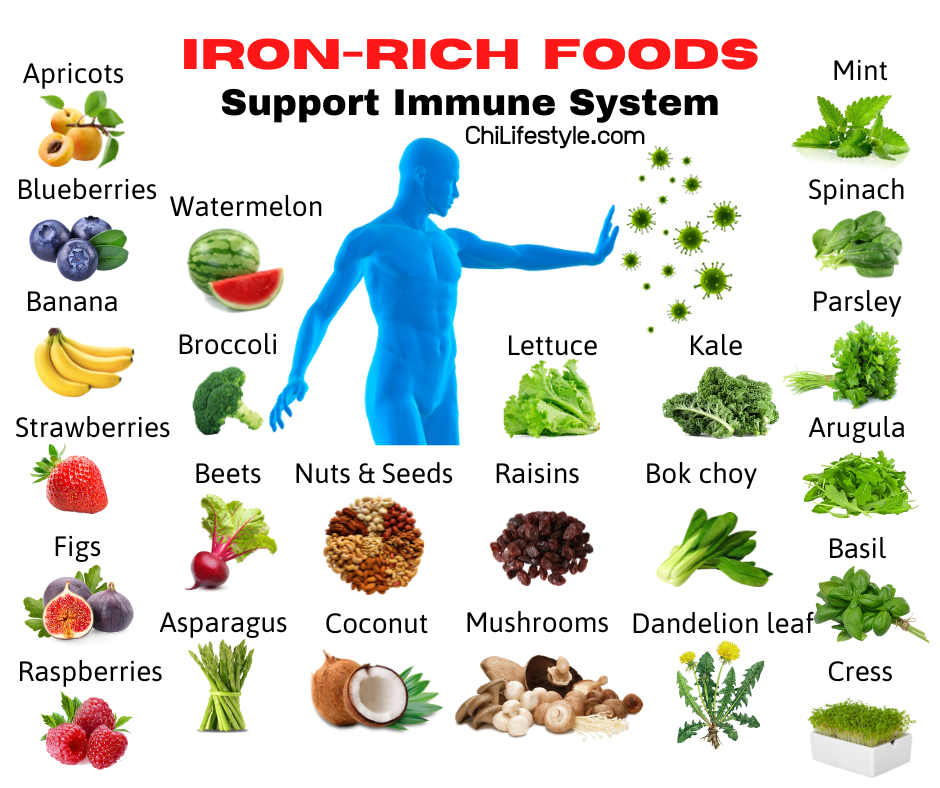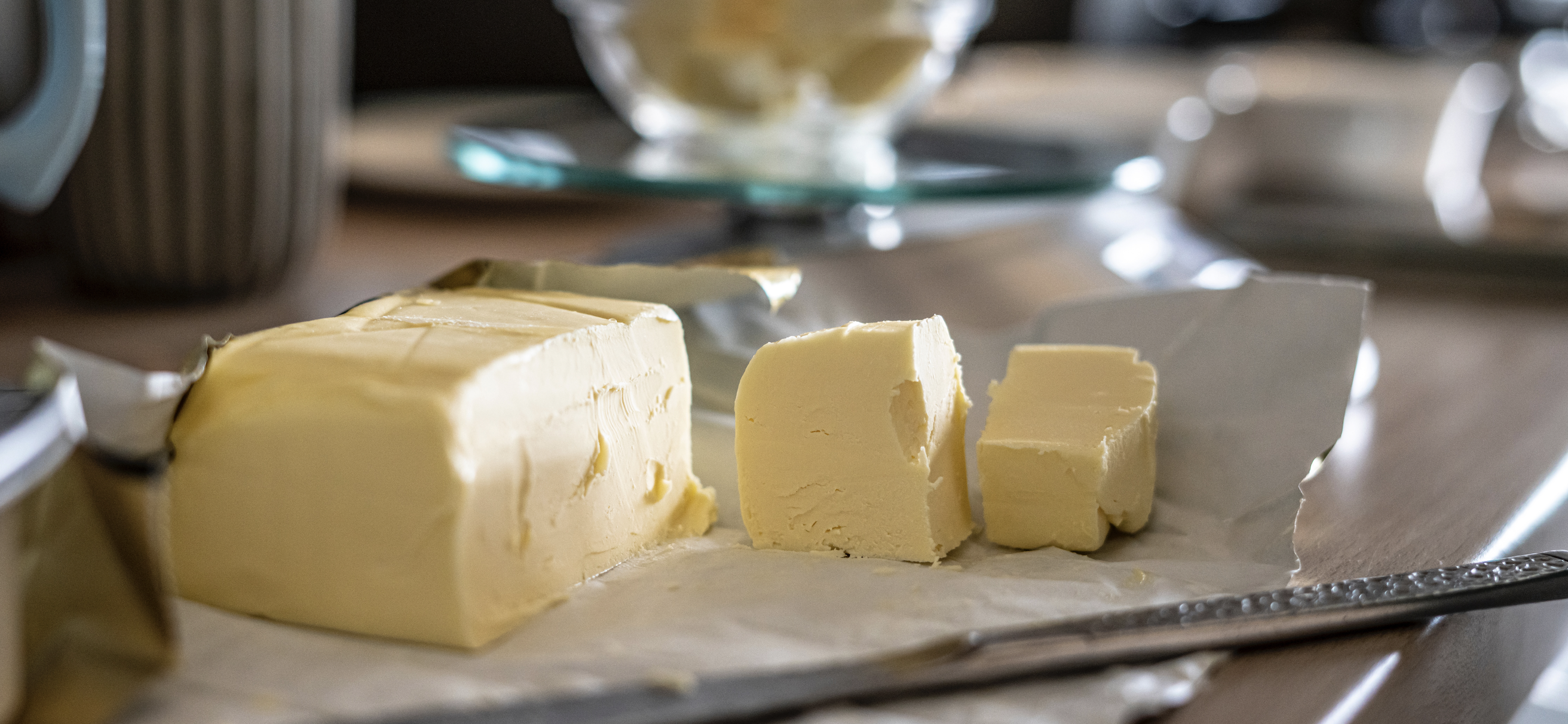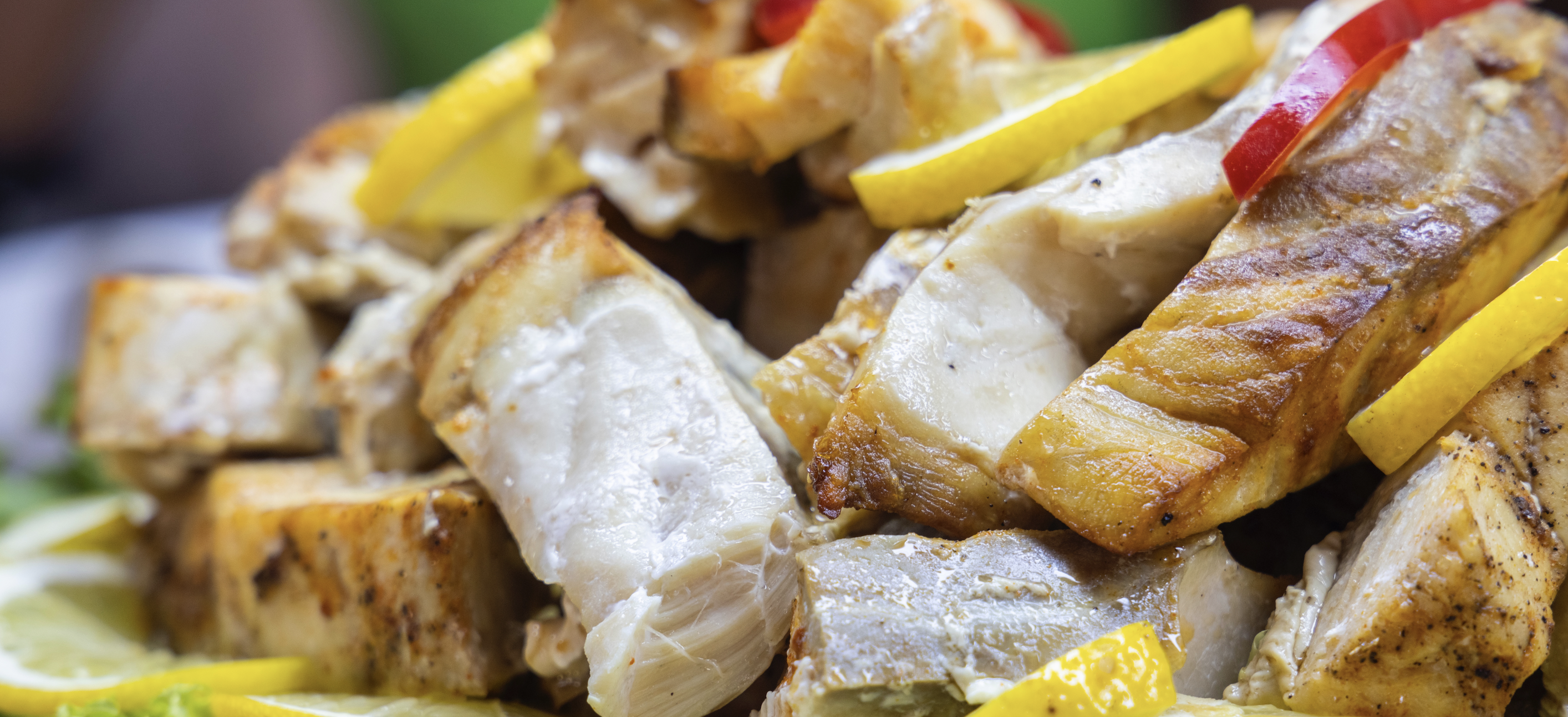Iron plays an important role in our bodies. If the body doesn’t have enough of this mineral, that leads to abnormally low levels of red blood cells, so that you can feel tired and listless. Other signs of iron deficiency are pale skin, frequent headaches, dizziness, dry and damaged hair and skin, brittle nails, shortness of breath, restless legs, increased sensitivity to cold and infections, cracked corners of the mouth, cold limbs, anxiety, and depression.
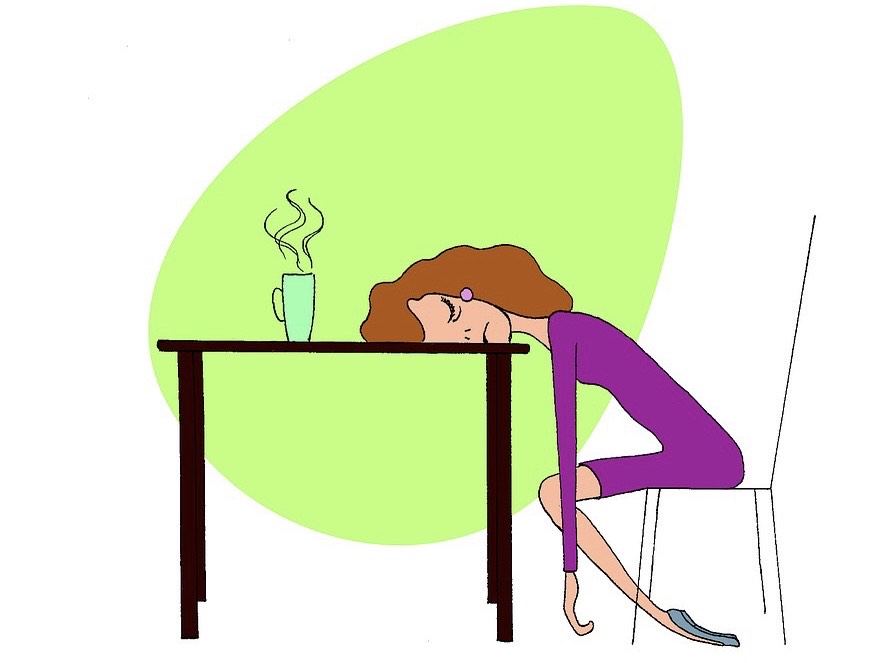
One of the biggest causes of iron deficiency in women is heavy menstruation. They lose too much blood, which is only partially supplemented for the next menstrual period.
Iron is indispensable for the production of hemoglobin, a protein that enables red blood cells to transport oxygen throughout the body (from the lungs to all cells in the body). With a lack of iron, the whole body suffers. If your body doesn’t have enough hemoglobin, your muscles, tissues, and cells won’t get enough oxygen and be able to work effectively. Ultimately this can lead to a condition called anemia. Without iron, body cells, and especially brain cells, die of oxygen deficiency. Therefore, iron supports the immune system, muscle function, cognitive function (intelligence), and energy supply, maintains a good mood, and prevents restless leg syndrome.
Iron is also indispensable for metabolism; it is needed to produce enzymes that are needed for the production of proteins, hormones, and other important substances. In addition, iron influences thermoregulation. That is the physiological ability of our bodies to maintain body temperature so that we do not get cold or suffer from cold limbs.
Below I have listed a number of the most common symptoms of iron deficiency for you.
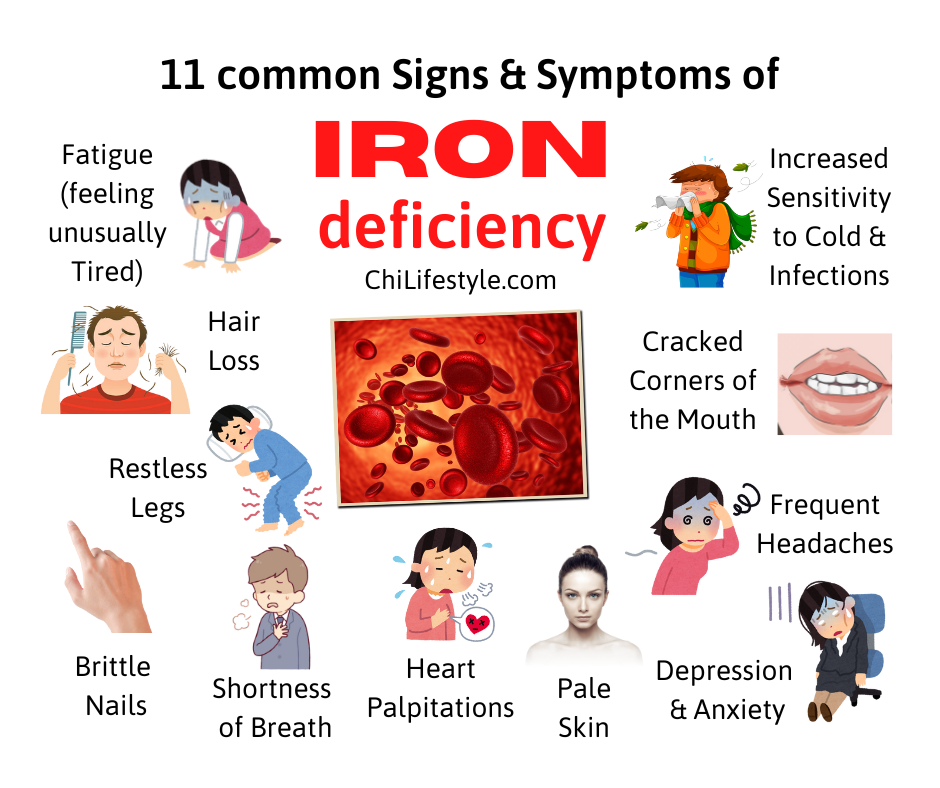
1. You are often tired
Feeling unusually tired (fatigue) is the most common symptom of iron deficiency and one you may overlook. Many people are used to being tired for a long time and often see it as the result of a busy life. However, it often has a different cause. Due to iron deficiency, less oxygen reaches your tissues and muscles, depriving them of energy. If too little oxygen is transported to the body cells, the cells lack the nutrition they need to produce energy. As a result, the body doesn’t get the energy it needs. In addition, your heart has to work harder to move more oxygen-rich blood around the body, which can make you more tired.
2. You have unusually pale skin
Paleness in general or in specific areas such as the face, nails, gums, or lower inner eyelids can be a sign of moderate or severe iron deficiency. This is caused by lower levels of hemoglobin, which gives blood its red color. The skin can lose its healthy, rosy color.
3. You are quickly out of breath
Shortness of breath is a common symptom of iron deficiency. When hemoglobin is low in your body, as a result of iron deficiency, oxygen levels will also be low. This means your muscles lack oxygen and won’t be able to do normal daily activities, such as climbing stairs, walking, and cooking. Your body will try to get more oxygen and increase your breathing rate. No matter how deep you breathe, if your oxygen content is too low, you will soon get out of breath. So, iron deficiency can also be the cause of this.
4. You have heart palpitations
An overworked heart can lead to an irregular heartbeat, enlarged heart, heart murmur, and even heart failure. These ailments occur when you walk around with anemia for a long time. So, keep an eye on your iron content.
5. You feel anxious or depressed for no reason
Life can be stressful enough, but an iron deficiency can strengthen this feeling even more and trigger anxiety. The palpitations and lack of oxygen in your nervous system can give you a “fight or flight” feeling if there is no reason for this.
6. Hair loss
It is normal for some hair to fall out during washing and brushing. However, significant hair loss can be a symptom of iron deficiency. The low hemoglobin level in your blood due to iron deficiency reduces the amount of oxygen available to cells responsible for hair growth.
7. Restless legs
Restless legs syndrome, a condition in which you feel a strong urge to move your legs while they are at rest and which usually gets worse at night, is a common neurological disorder. According to a 2003 study, iron deficiency plays a key role in that.
8. Cracked corners of the mouth
This symptom is observed in patients with iron deficiency.
9. Frequent headaches
10. Brittle nails
Brittle nails that break and crack easily may also be a symptom of iron deficiency.
11. An increased sensitivity to colds and infections
One of iron’s jobs is to keep your immune system healthy. Iron deficiency increases your sensitivity to colds and infections.
Do you recognize the symptoms? Has your iron content tested by your doctor? But remember that the above symptoms may also have other causes. What should you do if you have an iron deficiency? Choosing iron pills is not the best solution. In many cases, they do not offer a permanent solution. A disadvantage of iron supplements is that they are a major burden on your stomach, your immune system, and the acidity of your body.
With a healthy and varied diet, you can prevent iron deficiency or improve your iron content. If you are vegetarian or plant-based, you can get iron from certain vegetables and grains.
Natural iron sources
Dried herbs as a very rich natural iron source
A highly rich source of iron is dried herbs, such as dried parsley, thyme, basil, marjoram, rosemary, and even black pepper.
Let me show you an example with parsley. There is 7.5 mg of iron in 100 grams of fresh parsley. But 100 mg of dried parsley contains 95 mg of iron. So, you can see how huge the difference is. Nevertheless, fresh parsley is one of the richest natural sources of iron. However, many people think that fish is one of the richest sources of iron, but 100 grams of salmon, for example, contains only 1 mg of iron. That is 7.5 times less than in 100 grams of fresh parsley.
Surprisingly, even black pepper contains a lot of iron. 100 grams of black pepper contains no less than 29 mg of iron. Therefore, it is not at all superfluous to use these dried herbs regularly in your dishes.
